|
7/25/2014 Advocating to End Human TraffickingBy Karen Bean, See the Triumph Contributor
According to the Polaris Project (http://www.polarisproject.org/) North Carolina is 10th in the nation in Human Trafficking. This is based on the number of calls received by the National Human Trafficking Hotline (1-888-373-7888). Arguably, this is only one measure but, as human trafficking is largely an invisible problem which is not tracked extensively, the issue could be much larger and determining which state has the largest volume of trafficking is irrelevant. The personal stories of trafficking survivors that live in the Charlotte area, where I live, are testament to the horrific and heartbreaking reality of human trafficking. Their willingness to share their experiences and to advocate for change are truly inspiring. I am co-chair for a group that is trying to understand how widespread human sex trafficking is in the Charlotte-Mecklenburg area and what we can do to eradicate the problem. Our group is passionate about gathering information and advocating for a solution. We have talked with police departments, judges, district attorneys, and shelter administrators in addition to reading and attending workshops to increase our knowledge. However, our process has had its ups and downs. Human trafficking is such a huge issue nationally and globally. How can we possibly make a difference? We seem to be running in place and I fear that our group is feeling disheartened. In spite of this, I remain hopeful. North Carolina has passed legislation in the past few years that has established a fairly strong legal framework for handling traffickers. Our study group has decided to narrow our focus to actions that could have tangible results locally. One example is advocating for education and awareness of human trafficking for children and their parents. The typical age of girls lured into trafficking is 13, and often the first connection with a trafficker is though the Internet. Informing young children of how trafficking occurs and what to do if they or their friends are faced with a trafficking situation is a small but important step. Then we’ll go from there. Advocacy reminds me of an a cappella choir. Even without instruments the voices make a beautiful sound. And with each added voice the sound becomes more powerful and even more beautiful. Add your voice on issues that matter to you. Collectively, we can make a difference! 6/29/2014 Safe Housing for Trafficking Survivors By Alexis Keyworth, See the Triumph Guest Blogger
Housing for victims of human trafficking is sparse. In the United States, we claim to have about 200 safe houses, which may have just a few beds, each. Compared to the number of victims we have, which is somewhere in the hundreds of thousands, this is basically a Band-Aid on a broken bone. Victims are more vulnerable when they truly believe they have no way of escaping. Throughout their experience while being trafficked, they are probably told about how nobody will believe them if they escape, or that nobody will care, or how there isn’t any where for them to go because their trafficker is going to find them, or their family and somebody will end up paying. The sad thing is, they’re right - about part of it, anyway. There usually isn’t a great answer as to where the victim can go to receive services and the care they deserve. Going to a homeless shelter could get them killed, without the proper protections and confidentiality in place. If they end up at a women’s shelter, they will be surrounded by people who have experienced different types of abuse then they have. Although domestic violence is similar to human trafficking in some ways, there are also huge differences. Trafficking victims often find solace while surrounded by people who have survived the same horrors, or similar ones, to themselves. Therefore, shelter specific to trafficked victims is very important to their recovery. As with domestic violence victims, it is quite important that we provide shelters that are protected and not easily identified. They must have strict confidentiality policies and be very careful about concealing the location from the public. A huge piece that is missing from the conversation is the lack of guidelines and regulations for housing victims of human trafficking. In North Carolina, there is no procedure or policy stating the rules for opening a safe house. All that is required is that you either follow procedures for opening and licensing a home school or a residential child care facility. These licenses do not address the need for counseling, or the danger of being discovered by the trafficker. Another piece hit me when I started learning about safe housing in North Carolina: every single safe house in the state has a religious background. Although this is by no means a horrible thing, there is a down side. The part that worries me is the stigma the victims may worry about if they were to enter a religious agency. After being forced to sell their bodies 10, 20, 30 times a day for sex, they might not exactly see where religion fits into their lives. Although religion may be a healing tool for some, others may feel out of place. With regulations, there will be more safe houses opened that do not have religious ties and are more welcoming to non-religious victims. Also, we will be able to better ensure the recovery, safety, happiness, and future success, specifically for victims of trafficking. Therefore, what we really need to talk about is the need for policy at the federal and state levels that addresses this need, as well as a protocol from start-to-finish for human trafficking cases. Alexis Keyworth is a student at the University of North Carolina at Greensboro. By Kiricka Yarbough-Smith and Roxy Logan Q: What exactly is human trafficking? Is it the same as the smuggling people across a border? A: There are some commonalities between smuggling and trafficking, but the two are very different. Smugglers are typically paid to transport a person who wants to go across the border.Human trafficking involves exploiting a person as a commodity—with or without crossing any borders at all. It is true that with both international trafficking and human smuggling, there are usually “push” factors (problems in a person’s home country that make them want to leave) and “pull” factors (those that lead people to want to work in another country).These can drive people to travel, which then puts them at risk for exploitation from unscrupulous smugglers or traffickers, who may lie, charge outrageous fees for transportation, or even take their identity documents. So these two issues are similar in that they both can involve concealing people and taking them across national borders. But trafficking does not always involve these things, and, under national and international laws, it always involves more. Trafficking does not require anyone to cross a border. It can happen within a single city, state or country (this is “domestic” trafficking). It also involves force, fraud, coercion, or an underage victim, whose labor or body is sold for others’ profit. People may pay and consent to being smuggled across the border, then live in the new country as free individuals. Meanwhile, human trafficking victims are enslaved, often within their home countries, and do not truly choose to be trafficked. Q: Isn’t it just young girls and women who are trafficked? A: There is no one group that is trafficked, although some groups are targeted and exploited more often than others. Males and females of all ages, nationalities, ethnicities, and races are trafficked within and across countries for sex, labor, or both. Stories involving young women being sex trafficked often receive the most media coverage and public outrage, but trafficking is a crime that can reach the most vulnerable individuals in any group. In fact, both boys and girls are victimized through labor trafficking, domestic servitude, and sex trafficking for acts of prostitutionor child pornography. Both adult men and women are also trafficked, and adult men are even more likely than women to be trafficked for labor. Q: Isn’t human trafficking just a problem in other countries? Human trafficking is here in the United States, in every state. When advocates first started detecting human trafficking cases, they often involved victims from other countries. These victims were more likely to stand out and, therefore, be reported. Also, it was often more obvious that victims from other countries really were victims; advocates and law enforcement could see that abused people unfamiliar with our language who were brought here from other countries were indeed “victims” who could not be expected to ask for help or choose to leave their traffickers. Today, we know that most human trafficking is actually “domestic”—within our own country, involving our own residents as victims, buyers and sellers. These victims may know our language and technically be able to get back home, but they are so abused and brainwashed that they, too, are victims who cannot simply leave. Human trafficking is a global epidemic that preys on individual vulnerabilities, such as poverty, and is driven by the demand for trafficked labor and sex. These problems persist in virtually every nation in the world, including our own. Like these other nations, the U.S. has extensive work to do in order to address the things that drive its trafficking epidemic.  Kiricka Yarbough Smith provides training and technical assistance to service providers as well as resources and referrals to survivors of human trafficking. She also serves on the Executive Committee of The NC Coalition against Human Trafficking (NCCAHT) and co-chairs the NCCAHT committee to develop and implement Human Trafficking Rapid Response Teams across the state. She is also a member of Partner’s Against the Trafficking of Humans. Kiricka currently serves as a faculty member for the US Department of Justice Office on Violence against Women and Futures Without Violence project, building collaboration to address trafficking in domestic violence and sexual assault cases. She has also partnered with the Children Advocacy Centers of NC to develop and implement a domestic minor sex trafficking curriculum. Roxy Logan is an anti-trafficking activist, writer, and attorney. She currently serves as a board member and fundraising committee chair for the Rape Crisis Volunteers of Cumberland County. Previously, she assisted the North Carolina Coalition Against Sexual Assault with their human trafficking efforts. She earned her B.S. (magna cum laude) in Political Science from the University of Southern California, and her J.D. (cum laude) from William & Mary Law School. By Kiricka Yarbough-Smith and Roxy Logan The Trafficking Victims Protection Act (TVPA) recommends a four-pronged approach to addressing human trafficking: Prevention, Protection, Prosecution, and Partnership. Unfortunately, prevention is often an underfunded and underutilized tool in the fight against trafficking. Resource-strapped organizations, both public and private, are often restricted to reacting to trafficking cases rather than undertaking more systematic efforts to prevent future suffering and exploitation. To prevent trafficking, our movement must find innovative, low-resource, credible means of (1) addressing the emotional and material vulnerabilities of children most at risk for being trafficked and (2) confronting the cultural messages about masculinity and sexuality that drive willingness to sell or buy trafficked individuals. Educating populations vulnerable to trafficking is a critical component of prevention. Effective prevention programs should educate and provide outreach to particularly vulnerable populations of children to help combat the negative cultural and emotional forces that place them at increased risk for commercial sexual exploitation. This programming should help combat negative images children receive about sexuality from adults and the media, as well as focus on how to develop positive self-images and age-appropriate, healthy views of gender roles and sexuality. This programming is suitable for all demographic groups. Another technique some advocates have found useful is to reach out to the most vulnerable girls about the realities of prostitution and the techniques that traffickers might use to recruit them. Many trafficker-pimps initially portray sex work as a glamorous, easy way to make money and to earn the love and approval of the pimp. Traffickers carefully craft messages to lure in individuals based on their vulnerabilities, from the hopelessness engendered by multi-generational poverty to a basic desire for love. Programming must include a reality check for vulnerable young people on what the life traffickers offer really entails. Survivor-led programming here is likely to be the most effective, as youth are not always ready to listen to adults’ seemingly abstract admonitions about good long-term decisions. Because many pimps exploit children’s vulnerabilities by posing as loving boyfriends, caretakers, or a surrogate family, prevention curricula also needs to teach previously abused or neglected girls to develop a healthy understanding of love that is free of abuse and exploitation. These programs are especially important for the most vulnerable demographics, such as urban low-income youth most likely to be targeted because of their lack of economic options and foster care children who may never have known what a healthy, loving family life is like. It is important to offer after-school programs and hope for a better life to populations vulnerable to involvement in trafficking, whether as perpetrators or victims. Some advocacy groups have recently begun to offer resources for mentorships, internships, and constructive after-school activities that build self-esteem and offer legal, non-exploitative paths to financial and life success. To get the word out about such programs, advocates can offer materials and small group sessions to parents or youths in a targeted area. Depending on resources available, groups can also plan large-scale public events that bring in audiences through fun offerings, then give groups access to parents and youth who can use these resources. Any single group can only reach a limited number of youth state-wide, so it is important for both large, top-down and smaller grassroots groups to collaborate to expand the reach of prevention efforts. To accomplish this, advocates can offer leadership programs that train youth to become effective movement leaders and advocates in their own communities. Larger groups not performing direct services and outreach can support these programs by offering logistical training to help existing agencies around the state to train and engage youth. Community volunteers may also help expand the movement’s real reach, as well as link vulnerable groups to a wider variety of community resources. To help expand community members’ involvement, groups may find it helpful to enlist and train volunteers from numerous disciplines to help expand prevention work into more workplaces and organizations. To prevent trafficking, we must also address the availability and demand for trafficked people. The majority of sex traffickers and purchasers are male, so educating men and boys is essential to preventing trafficking. Organizations should work to reduce male participation in sex trafficking and similar forms of gender-based oppression by addressing unhealthy norms about gender-based dominance and instilling healthy, respectful models of masculinity. Challenging damaging views of gender and sexuality is critical to addressing demand. The women’s movement has made major gains in addressing women’s equality, but today we are losing traction on developing a healthy, egalitarian sexual culture. Today, media from pornography to music videos often provides a haven for an anti-women backlash, in which gender roles are clear and regressive. To reduce demand, we must offer more positive forms of education about healthy sexuality and openly confront the negative messaging about gender and sexuality that normalizes the sale and purchase of women for sex. To increase credibility with young boys, it helps to involve male staff members and, where possible, male athletes (local or national), musicians, political or business leaders, or other examples of positive male role models. These men can mentor boys on positive masculine identities and even work with athletic coaches to change the common terminology that devalues girls and reinforces links between sexuality, dominance, and aggression. The anti-trafficking movement’s prevention work must involve men in changing other men’s attitudes about commercial sex, respect for women as equals, and the meaning of healthy masculinity in our generation and those to come.  Kiricka Yarbough Smith provides training and technical assistance to service providers as well as resources and referrals to survivors of human trafficking. She also serves on the Executive Committee of The NC Coalition against Human Trafficking (NCCAHT) and co-chairs the NCCAHT committee to develop and implement Human Trafficking Rapid Response Teams across the state. She is also a member of Partner’s Against the Trafficking of Humans. Kiricka currently serves as a faculty member for the US Department of Justice Office on Violence against Women and Futures Without Violence project, building collaboration to address trafficking in domestic violence and sexual assault cases. She has also partnered with the Children Advocacy Centers of NC to develop and implement a domestic minor sex trafficking curriculum. Roxy Logan is an anti-trafficking activist, writer, and attorney. She currently serves as a board member and fundraising committee chair for the Rape Crisis Volunteers of Cumberland County. Previously, she assisted the North Carolina Coalition Against Sexual Assault with their human trafficking efforts. She earned her B.S. (magna cum laude) in Political Science from the University of Southern California, and her J.D. (cum laude) from William & Mary Law School. 6/26/2014 What Is the Face of Human Trafficking? By Rachel Parker, See the Triumph Guest Blogger
Heartbreaking, frustrating, bizarre, and miraculous…working with survivors of human trafficking are all of these things and more. Definitions and statistics are needed to move systems and infrastructure forward, but in moving a community to be concerned for their fellow man, for their neighbor, it should be the knowledge that as little as one has been affected. Human trafficking at its heart is termed best by Lauren Bethell in that it is an exploitation of vulnerability that makes a person the commodity. If you accept this as being so, then consider who you think to be vulnerable…have you ever been vulnerable? Struggled with self-esteem, relationships, dreams, and/or finances? We continually see the victim as someone other than ourselves or our family, but they are people too, someone’s family, with dreams and goals and visions of an exciting life. They are not to be pitied or labeled; trafficking is a crime that was perpetrated against them, but does not define who they are. They are survivors and we should not forget that. From a boy struggling to become a young man who wants to protect the innocent and become … a soldier. From a woman who is hurt by the services and people around her that should protect her but fail, leading her to flee and seek protection elsewhere but finds that it is corrupted. To a woman struggling with identity and looking to rely on the goodness of those around her, but finding that it falls short too often. And a parent that sells their child. The situations change, the victimization labor trafficking and/or sex trafficking, and the needs may vary, but a person remains who has a life ahead of them. Aftercare services are developed to help meet emergency, transitional, and long-term needs. This can be housing, medical, dental, mental health, education, employment, interpretation, transportation, and legal assistance. These services should maximize their strengths, and goals set by the survivor with the service provider. The results can be miraculous… From a woman learning self-defense and situational awareness so that she will not be hurt again. From a woman getting a new job and buying her first car. To a woman learning about the role of service provision and assistance for individuals and the community resulting in the birth of a new advocate and humanitarian. And a man learning to work through a disability and finding joy in expression through art. Rebuilding a life is a painful, up-hill battle, and is expensive. It is also something that the community needs to be involved in as this crime exists according to supply and demand. Where have we created the demand? Human trafficking exists in the distortion of our culture from what we perceive as our right and what is a luxury. TV ads, movies, magazines, and retail tell us all that it is our right to have that new product, electronic, chocolate, good time and ‘happy ending’, etc. We are a nation of consumers, and we think that it’s ok. That cheap sex and cheap goods are sought after as the norm. That we consume, attain, download, or ingest everything in one second and throw it all away in the next. Where is the value in this? We look at victims and our hearts break, but we don’t change the fact that we are the buyers that continue to push victimization of our fellow citizens, community members, friends, and loved ones. Heartbreaking, frustrating, and bizarre in considering the impact of human trafficking on a life and realizing that we as individuals and part of a community have been complicit, if unknowingly, in this victimization. However, moving forward you can no longer claim that it is unknowingly perpetrated on your part. Miraculous in seeing victims transition to survivors, and people coming together to support them in this transition. There is strength in everyone, how will you utilize yours? Rachel Parker is the Anti-Human Trafficking Specialist for World Relief High Point’s Anti-Human Trafficking Program. Rachel works to strengthen collaborative relationships with law enforcement, service providers, the church, and communities-at-large to serve and support victims of human trafficking. Rachel coordinates the Triad Rapid Response Team as well as monthly conference calls for the NC Rapid Response Team Coordinators. She also represents World Relief High Point on the Executive Board of the NC Coalition Against Human Trafficking (NCCAHT). By Sara Forcella, See the Triumph Contributor
Sex trafficking is not something that is easily understood, or frequently discussed. Many times victims of sex trafficking, like victims of domestic violence, face being stigmatized by their communities and our society as a whole. As human beings, it is common for us to attempt to categorize people and place them into boxes. By doing so, we are able to quickly understand and label others, to distinguish whether or not we like them, and decide how we interact with them. The problem with these labels, however, is that they allow for clouded judgment and misunderstanding instead of tolerance, compassion, and understanding. It’s common for us to put victims of sex trafficking in very rigid and unkind boxes--within our society they may be viewed as willing prostitutes or even undocumented citizens attempting to gain citizenship--all of these accusations are false. Most victims of sex trafficking are unwilling workers who are forced to work, abused, and threatened. Victims of sex trafficking may find their way into this “business” for many different reasons. In some cases children or teens are kidnapped and forced into the industry. Runaways and those living on the streets also face being lured into the sex trafficking industry. Some victims may be tricked or coerced into the industry with promises of wealth or a better life. One thing to remember about the sex trafficking industry is that it relies on members of vulnerable populations to fulfill its needs. Traffickers may target women and children because of their disenfranchised place within society. Immigrants and undocumented citizens may also be targets due to their limited access to resources. Traffickers are tactful and understand that by using lies, manipulation and false hope, they are sometimes able to coerce people into their work. While it is true that human trafficking can take place in legitimate business settings, victims typically will not seek immediate help. Many times victims of sex trafficking face depression, self-blame, and trust issues. Victims may be scared of what will happen to them if they do turn to others for help. Just because somebody does not turn to you for help does not mean that they do not want help, or need help. Before you make snap judgments about those working in the sex industry, remember that a majority of victims do not willingly chose to be part of it. It is up to us to end the stigma that is attached to sex trafficking. By breaking down the boxes that we created and the labels we attach, we are taking a small step to change the way that victims of sex trafficking are seen within our society. 6/22/2014 Understanding Human TraffickingThe same great group of students who brought us this Human Trafficking Awareness Video have created the infographics below to help illustrate the impact of trafficking. The sources they used for the statistics include the following:
6/21/2014 The Complex Trauma of Sex TraffickingBy Megan Richardson, See the Triumph Guest Blogger Human Trafficking has become a much publicized topic within the past few years, and while many people are starting to know more about it, it’s hard to know exactly how to engage in the movement other than by donating to an organization that helps survivors. Gary Haugen of International Justice Mission is quoted as saying “Nothing happens just because we are aware of modern slavery, but nothing will EVER happen until we are.” Knowledge is power, and just like with the dynamics of domestic violence and sexual assault, the more you know the more capable you are to help survivors walking through your doors. If you work at a domestic violence/sexual assault shelter, you may have worked with a “trafficking” survivor without even knowing it. Trafficking survivors are experiencing sexual assault and domestic violence regularly, so how are they any different? There are many complicating factors to keep in mind when working with survivors of trafficking including the following: identifying survivors, challenges to rehabilitation, understanding complex trauma and utilizing trauma informed care. Because of the covert nature of human trafficking, it is rare for a victim to self-identify. This is mostly because victims blame themselves, thinking they have consented to doing this type of work. Traffickers target vulnerabilities, and frequently use a victim's history of sexual abuse or neglect by convincing them that they can take back control of their trauma by making money off of sex – an act that has previously caused them so much pain. By targeting vulnerable populations, victims then take ownership of the decisions being made and believe what is happening to them is an empowering choice. Once a victim is initiated into “the Life,” it becomes very difficult to get out. Pimps can earn up to $632,000 per year by selling four young women or children, meaning they have a lot to lose if someone leaves. Therefore, clients also do not self-identify out of fear due to threats of deportation, violence, or attempts at keeping their family safe from retribution. Survivors also often view their situation as temporary, and have been taught to mistrust law enforcement or other agencies that are in place to keep them safe. Identifying survivors can be complicated, but not impossible. Red flags that might arise in working with a client could consist of any involvement in sex work, underpayment in promised work, confiscation of legal documents, different work than promised, and working to pay off a debt. It can also be important to keep in mind that women can be traffickers too! Within the trafficking culture, there is room to move up in ranks, so it possible a woman who is a trafficker now has been in the business and has her own experience of abuse from an early age. Because the issue of trafficking has become so sensationalized, many people are quick to take action, but just as quickly surprised at certain challenges to rehabilitation that arise. We like to think that once someone is rescued from their pimp, they will resume a normal lifestyle without complications, and fail to think victims could possibly return to such a violent and life threatening lifestyle, much like in cases involving domestic violence. Many survivors have gone through a “turning out” period with their trafficker involving intermittent violence and mixed message that create trauma bonds similar to the Stockholm Syndrome, where victims experience empathy and sympathy towards their perpetrators. Through this established loyalty, they may have been conditioned to believe that everyone else is against them. Relapse is high and likely due to the psychological control exerted over them, and reflects the traumatic bonds established early on in the relationship. Other challenges typically presented in a clinical setting include problems engaging in a trusting relationship, sexual confusion, resistance, and difficulty adhering to rules and structure. For survivors of Human Trafficking, a diagnosis of Post Traumatic Stress Disorder (PTSD) just is not enough. Trafficking survivors have often experienced complex trauma including early childhood abuse and then continued interpersonal trauma for prolonged periods of time. The difference between someone in a shelter for domestic violence is that they may be seeking safety from one person in the community, while a survivor of trafficking is likely to have been violated by many. It’s probable that a trafficking survivor has been perpetrated by their pimp, their buyers or “johns,” and/or people appointed by the pimp to help inflict punishment. Even if a pimp is incarcerated, there are often additional networks of people that are likely and capable of causing significant harm to the client, therefore, causing experiences of poly-trauma, from multiple abusers. Having been exposed to such complex trauma, clients can present in a state of either hyperarousal or hypoarousal, and might seek services for a variety of psychological disorders including, but not limited to Substance Abuse Disorders, Attachment Disorder, Somatic Disorders, Dissociative Disorders, Mood Disorders, Personality Disorders, Anxiety Disorders, and more. When working with survivors, just as with other clients, it is important to be non-judgmental and respectful, recognizing the strengths within them that have helped them to survive. Trauma informed questioning can assist in establishing a safe and trusting relationship. What would it mean to say something like “every couple has problems – what are some things in your relationship you don’t like.” versus “have you ever been abused?” Particularly with trafficking clients, it can help to address emergency and basic needs first, and present opportunities for choice, such as “would you like something to drink?” Be up front about who you are and your goals for speaking with them, while asking for permission for things like taking notes or closing the door. Setting appropriate boundaries for the client will become necessary, while also making sure to take care of yourself, as this can be very difficult work. There are immigration remedies available for survivors of trafficking and many organizations ready to take action and offer support to service providers. For additional resources and information, I recommend you contact The Polaris Project, your state-level Coalition Against Human Trafficking, World Relief, and/or Shared Hope International.  Megan Richardson currently works as a Crisis Intervention Therapist and Advocate. In this role, she mostly works with survivors of domestic violence, sexual assault, and trafficking, offering individual and family counseling, group treatment, and advocacy services including 50b restraining order and immigration remedy assistance, safety planning, and ongoing support. She graduated from the University of North Carolina at Greensboro (UNCG) with her Master’s and Educational Specialist Degree in couples and family counseling. After graduating from UNCG, she worked with a non-profit organization in the Philippines assisting survivors of human trafficking, and offering training opportunities to those working closely with survivors. 6/19/2014 Sex Trafficking Affects EverybodyBy Sara Forcella, See the Triumph Contributor
The term “sex trafficking” may resonate differently with us all--for some of us this term is completely unfamiliar and unknown, and for others this term may remind you of a scene in a dramatic movie or book. Whether you are completely unaware of sex trafficking, or you believe that it only happens in some far off land, I urge you to consider that sex trafficking is a very real concern which affects thousands of Americans every year. These statistics show just how much sex trafficking affects our nation.
Sex trafficking does not only happen in far off nations or non-fiction novels, it may be happening right in your backyard. In fact, victims of sex trafficking have been found in all 50 US states in areas ranging from cities, suburbs and rural areas (Polaris Project). No community in the US is left unaffected. Sex trafficking is not something that is always hidden, in some instances, the industry relies on various legal and legitimate business settings all around the US to traffic their victims. Victims of sex trafficking may be forced to work in brothels, online escort services, fake massage business, strip clubs and as prostitutes (Polaris Project). Whether you have been directly affected by this or indirectly affected, sex trafficking affects us all in some way or another. Therefore, it’s important for all of us to take a stand and help end its existence. This may seem like a daunting and unreasonable task, but there are small and simple steps that you can take to help victims and possible future victims of sex trafficking.
If you have any information, tips or questions related to sex trafficking, call The National Human Trafficking Resource Center’s toll-free hotline, at 1-888-373-7888 By Christine Murray, See the Triumph Co-Founder
Although attention to the issue of human trafficking has increased, in many communities, specific services to support survivors of trafficking have yet to be developed. In some areas, agencies that typically serve survivors of intimate partner violence and/or sexual assault are leading the way to ensure that survivors of trafficking also can receive the support and resources they need. There are many potential overlaps between trafficking and intimate partner violence, including the following:
According to Futures Without Violence, some of the services that survivors of trafficking need include physical and mental healthcare, legal services, assistance with immigration issues, and tangible resources, such as housing. Across the country, many agencies are collaborating with others in their community to ensure that survivors of trafficking have access to these resources. For example, in New York, Sanctuary for Families has a comprehensive Anti-Trafficking Initiative. In New York City, Safe Horizon has an Anti-Trafficking Program, which both provides services to victims and works to educate the community about this issue. In Dallas, Mosaic Family Services offers support, such as legal representation and counseling, to survivors of both trafficking and domestic violence. Other organizations, such as the Center Against Rape and Domestic Violence in Corvallis, Oregon, help raise awareness about trafficking by providing information on their web-site. Other resources exist to help agencies who wish to provide competent services to survivors of trafficking. These include a manual for domestic violence service provider agencies from the Florida Coalition Against Domestic Violence, a set of recommendations from the Asian and Pacific Islander Institute on Domestic Violence, and an assessment guide from the Polaris Project. There’s a lot of work to be done to continue to educate the public about trafficking and to ensure that there are adequate services for survivors in every community. We’re thankful to those who are leading the way in communities across the country to both prevent and respond to this important issue. |
Archives
July 2024
CategoriesAll About Intimate Partner Violence About Intimate Partner Violence Advocacy Ambassadors Children Churches College Campuses Cultural Issues Domestic Violence Awareness Month Financial Recovery How To Help A Friend Human Rights Human-rights Immigrants International Media Overcoming Past Abuse Overcoming-past-abuse Parenting Prevention Resources For Survivors Safe Relationships Following Abuse Schools Selfcare Self-care Sexual Assault Sexuality Social Justice Social-justice Stigma Supporting Survivors Survivor Quotes Survivor-quotes Survivor Stories Teen Dating Violence Trafficking Transformative-approaches |
Search by typing & pressing enter


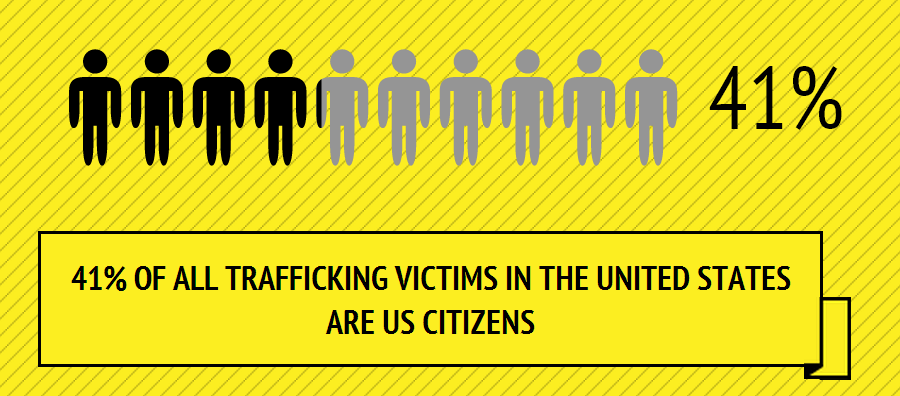
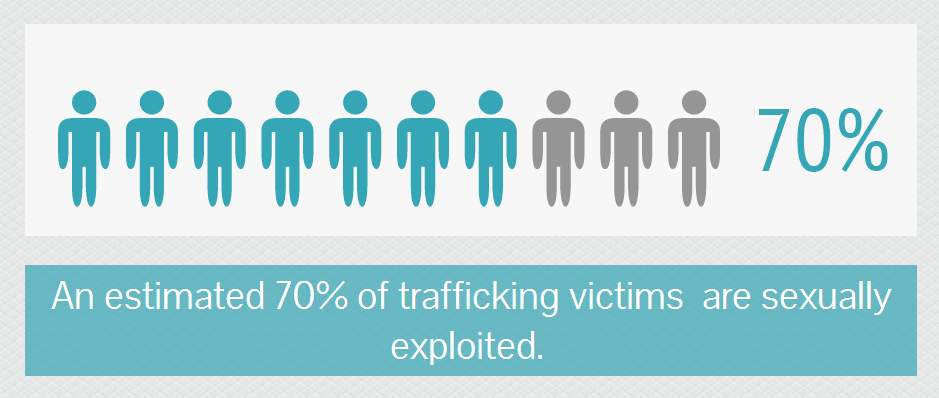
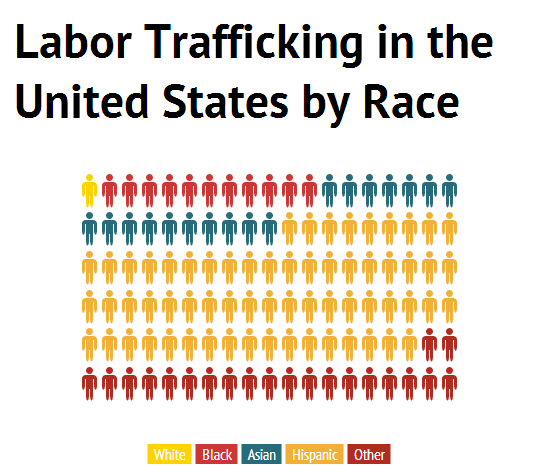
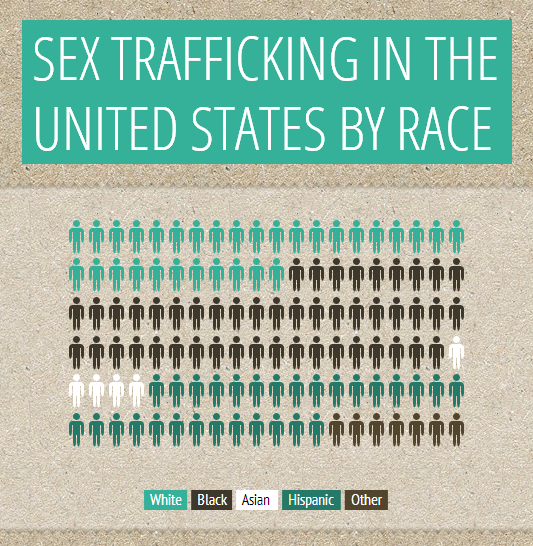
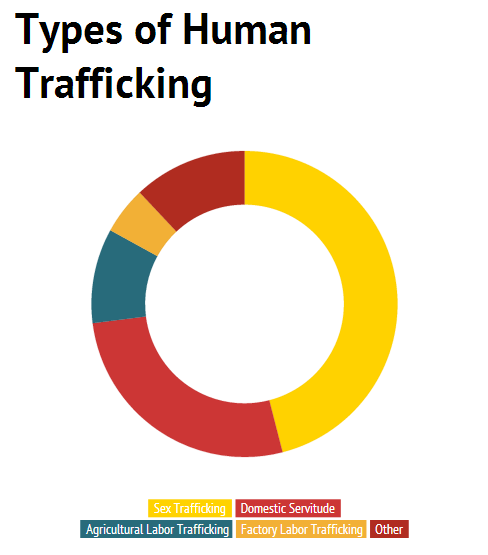
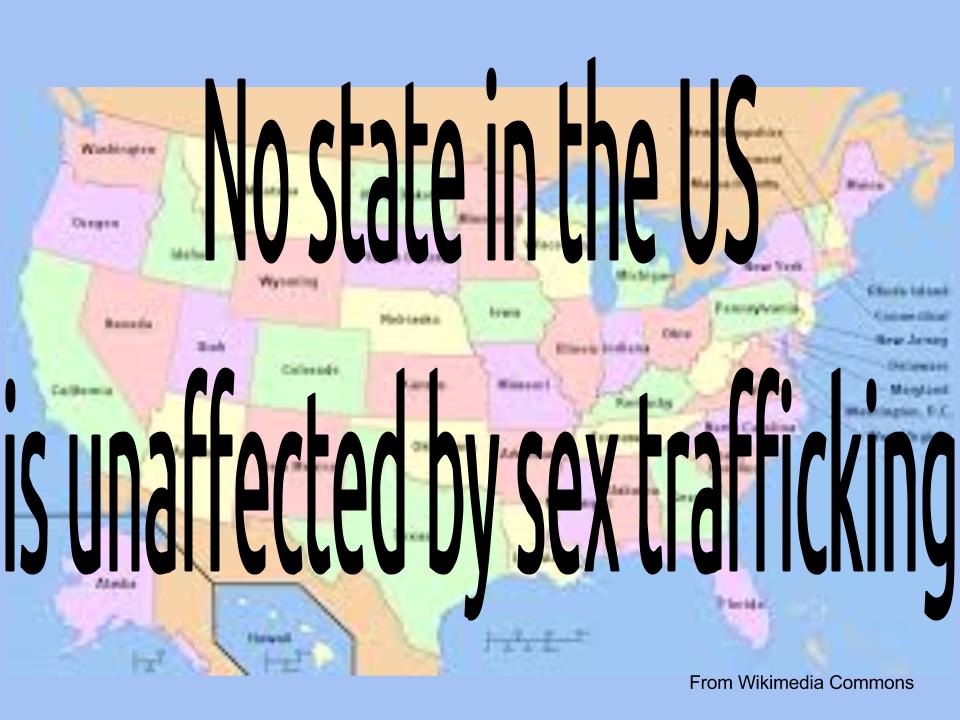
 RSS Feed
RSS Feed